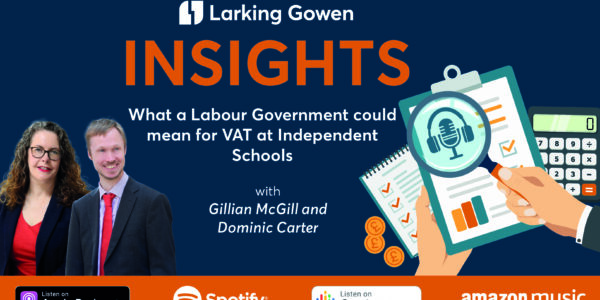calls for greater funding for nature in schools to alleviate mental health crisis
24/03/2022 - Nature Premium

The large majority (73%) of people in Britain agree that greater access to nature in school can improve children’s happiness and wellbeing, reveals the Nature Premium.
The survey of 2,000 UK adults shows that three in four (74%) believe access to nature at school would improve young people’s quality of life and four in five (79%) believe that no matter their socio-economic background, children and young people should have equal access to regular nature experiences.
The results come as the Nature Premium campaign calls for the Government to guarantee that all children will benefit from having access to nature while in education, with additional funding and support to level up access for those who need it most. The Nature Premium would ensure fairness to all children and remove the iniquity of access to nature that has become apparent during coronavirus lockdowns.
These lockdowns and their consequent school closures have had a devastating impact on children and young people, many of whom are now facing an epidemic of educational inequality, increased safeguarding risks, an adverse effect on their long-term life chances, and a worsening mental health crisis.
In the last three years, the likelihood of young people having a mental health problem has increased by 50% and one in six 6-to-16-year-olds now have a probable mental health disorder, alongside increased levels of distress, worry, and anxiety. Research has also found that heavy social media use is associated with worse mental health outcomes, such as low self-esteem.
Bridget Knight, headteacher, Eardisley CE Primary School:
“The fact that mental health for adults and children improves in nature is well documented. It is also well known that increasingly as a society we are remote from and disengaged from nature. So a big refocus and spotlight on nature-led learning is a good thing”
The Opinium research shows that the overwhelming majority of the public see greater access to nature throughout education as a way to tackle these mental health concerns by improving young people’s quality of life (74%), improving their their happiness and mental wellbeing (73%), encouraging healthy habits (71%), and offering an anxiety-reducing alternative to time spent online (73%). Further research from Natural England shows that 83% of children agreed that being in nature made them ‘very happy’ and more generally, those who are more connected with nature are usually happier in life.
Miles Richardson, Professor of Human Factors and Nature Connectedness at the University of Derby, added:
“Sadly, although children enjoy nature, evidence shows that they become disconnected from it during their school years. Yet children who feel a close connection to nature tend to have better mental wellbeing. Simple everyday engagement with nature is good for children – and will be good for nature too.”
Today’s finding shows 65% of the public support the Nature Premium, which will improve children’s connection to nature by guaranteeing funding and resourcing for nature-based activities such as tree-growing, community gardening, visits into nature and Forest School while in education settings.
Not only do the public think greater access to nature will benefit children’s mental and physical wellbeing, but three in five (54%) think a Nature Premium would be a worthwhile investment to help the Government level-up skills, health, education and wellbeing. In February, Michael Gove, Secretary of State for Levelling Up, Housing and Communities, unveiled the Government’s flagship “Levelling Up White Paper”, which set out a plan to transform the UK by spreading opportunity and prosperity to all parts of the country. The Levelling Up Agenda emphasises restoring people’s “pride of place”, improving “quality of life” and increasing public access to safe, attractive, communal green spaces.
Within both the Government’s Environment Act and the Department for Education’s draft sustainability and climate change strategy published at COP26, the Government has promised to reinforce children’s connection with nature by offering opportunities for them to spend time in nature at school, to learn more about nature, and to become actively involved in the improvement of their local environment. The Nature Premium aims to help deliver these promises for all children.
Clare Morpurgo, Founder of Farms for City Children, and Michael Morpurgo, author, said:
“It is becoming ever clearer that every child must be able to know and care for the world around them. We cannot expect them to want to heal nature unless they first care for it, deeply. In caring for nature we care for ourselves. Which means experiencing it first hand, as close up as possible. This is every child’s right. The Nature Premium would play an essential role at the heart of a child’s education.”
The majority of respondents (65%) think that greater access to nature in school has the potential to inspire the current generation of children and young people to lead more sustainable lives, including taking pride in their local environment, consequently tackling plastic, noise, and air pollution (76%), and that this access can improve communities by combatting local nature loss (70%), improving green space in towns and cities (60%), and even relieving the long-term burden on the NHS by improving health and wellbeing (65%).
The calls also follow recent predictions from the Office for National Statistics (ONS) that the cost of living is set to rise by as much as 10% in the next three months. As prices for the essentials rise, two thirds of Brits agree that the Government should guarantee funding for schools so children can access nature despite these cost of living increases, and 59% believe that the Nature Premium would help to remove inequity in access to nature.
Edd Moore, primary school teacher, Dorset:
There is a clear disparity in access to nature for children and young people in the UK, which has only been made worse by lockdown. The Government must ensure all children have equal opportunities to get into nature, regardless of where their school is, where they live, or their family’s income. Time outdoors experiencing our natural world should be a right, not a privilege.
Caroline Lucas MP, the Green Party, said:
“Nearly half of all species in Britain are in decline. In the past decade alone, we have lost a quarter of our hedgehogs and 30% of my favourite birds, swifts. There is a real danger that many of the next generation will grow up unable to recognise the wildlife on our doorsteps until it is gone. So there is no doubt in my mind that a Nature Premium, and ensuring the next generation grows up knowing, understanding and loving the natural world, is vital.”
Professor Sir Partha Dasgupta FRS FBA, author of the Dasgupta Review, said:
“In my report…I made a plea for a transformation of our education systems towards one where children from an early age are encouraged to try and understand the infinitely beautiful tapestry of processes and forms that is Nature’. I believe that the Nature Premium will deliver such a transformation to the benefit of our children and their future development’.”
The Nature Premium campaign is supported by over forty educational and environmental organisations including the the RSPB, the National Association for Primary School Education, PACEY (the Professional Association for Childcare and early years), the Council for Learning Outside the Classroom, the Institute for Outdoor Education, CPRE The Countryside Charity.
Members of the public can find out more about the Nature Premium campaign at https://www.naturepremium.org/
All articles on this news site are submitted by registered contributors of SuffolkWire. Find out how to subscribe and submit your stories here »

